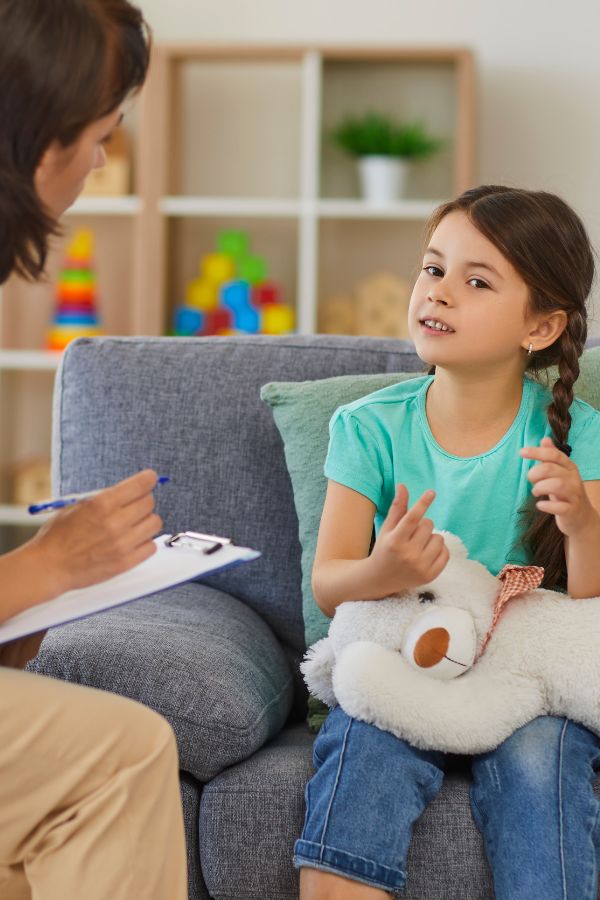Children and Adolescents
Helping Young Minds Grow Strong

Supporting the Emotional Well-Being of Children and Teens
Our goal is to help young people discover ways to be well balanced, comfortable in their own skin and build capacity to handle everyday stressors. We focus on working to understand a child’s internal world to be able to help them put words to feelings, thoughts, sensations and communicate more effectively, whether it’s through play, drawing, or talking. Children often need adult help with this, and helping parents and children understand each other’s needs and perspectives can make for more satisfying relationships at home and in the community. We work on developing the child’s strengths and self-control, as well as applying new ways of coping with life’s challenges.
Counseling with children and adolescents begins with building trust and respect for what the child’s or adolescent’s behavior is communicating.
Mental health concerns in children and adolescents are often hard for parents to identify. It’s not unusual for them to show challenging behavior from time to time. Behavior is a powerful way to communicate when one is unable to put words to feelings or experiences. Behavior is a form of communication. However, an untreated emotional issue can become a serious mental or behavioral problem and affect your child’s development, progress in school, friendships and even your family’s daily life. Counseling can provide them with a more positive sense of self, so they will be more capable of developing and enjoying a genuine, rewarding and positive life.
Mental health issues in children are treatable. Early identification, diagnosis and treatment often help children reach their full potential and improve the family dynamic. We provide both individual and family therapy and encourage family involvement and support as a critical part of the therapeutic process.
Frequently Treated Issues
These are the most commonly treated issues at SamaraCare:
Family Situations
- Adult Children of Addicts
- Divorce, Remarriage & Blended Families
- Elder Care
- Family Conflict and/or Abuse
- Marriage & Pre-Marital
- Parenting
- Sexual Dysfunction
Emotional Concerns
- Anger & Aggression
- Anxiety & Panic Disorders
- Depression & Stress
- Grief & Loss
- Impulsivity
- PTSD
- Self-Esteem
- Trauma Recovery
Other Challenges
- Addiction
- Adult ADD & ADHD
- Autism Spectrum Disorder
- Chronic Illness
- Domestic Abuse
- Eating Disorders
- Life Transitions
- Self-Injury
- Spirituality
- Substance misuse
Start Your Journey
Getting Started Is Easy

Choose A Care Provider
1
Choose a Care Provider whose background, experience, and specializations meet your unique needs.

Verify Your Coverage
2
If you’re using insurance, we encourage you to check with your insurance provider about your behavioral health coverage.

Prepare For Your Visit
3
This will involve filling out pre-visit forms and preparing for your first visit, also known as your intake session.





